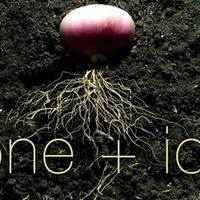Making sense of spelling - Gina Cooke
You've probably seen an email or an internet post
about how weird and random English spelling seems to be.
But what if I told you that it actually makes perfect sense?
In fact, that's spelling's job:
Making sense.
Think of spelling a word as peeling back the layers of an onion.
The first layer is a word's sense and meaning.
Often there are multiple layers of meaning.
Another layer is the word's structure.
Think of the center of the onion as a word's base element,
its essential kernel of meaning.
A free-base element, like O-N-E,
or T-W-O,
can stand on its own as a word,
like one, or two.
A bound base, like the R-U-P-T of "erupt" or "rupture"
needs another element in order to surface in a word.
Two or more bases
give us compounds, like "twofold" or "someone" or "bankrupt.
Once we figure out a word's meaningful elements,
We can peel back its history to shed a little more light
on why it's spelled as it is.
The word "two," for example,
needs its "W" in order to mark its connection
to words like "twice," "twelve," "twenty,"
"twin" and "between.
A word's history is another layer of the onion.
With that understanding, let's investigate the word "one.
First we need to check in with what it means.
Unique, single, solitary.
"One's" historical layers include its relatives
"only," "once," "eleven," and even "a,"
"an" and "any.
But it's the morphological relatives -
the ones that share the base O-N-E -
That are really astonishing.
There are the familiar ones, like "anyone,"
and "one-track" and "oneself" - those are obvious.
But let's take a look at some unexpected derivations
of the word "one.
The word "alone" is built from the prefix A-L plus the base O-N-E.
It's the same A-L prefix that we see
in "always," "already," "almighty" and "almost.
It means "all.
the word "alone" means "all one.
It was misanalysed in the middle ages
as having the prefix "a," like in "asleep" and "awake" and "around,"
and a new base was born: L-O-N-E,
which then developed into its own family.
In the word "atone," we find the familiar preposition "at"
compounded with the base O-N-E.
See, when we atone for something we've done wrong,
we attempt to make things whole again,
to fix what's broken, to be at one again with whomever we hurt.
But here's perhaps the best one of all:
the word "onion," which is also frequently derided as irregular
or crazy, for its spelling of "uh" with an O.
But again, if we look into the word's structure,
and its history, it's a mystery no more.
When we look at the roots of an onion,
we learn that it is written as O-N-E plus I-O-N,
the same suffix we find in "tension," "action," "union"
and thousands of other words in English.
Unlike the many cloves in a head of garlic,
an onion has a single bulb.
It is marked by the state or condition of oneness.
Like an onion, English is one -
one single writing system shared across time and space.
Its structure and its history have many layers,
and peeling them apart can really add flavor to our language
and spice up our understanding.
See, spelling is never just about spelling, but about how written words make sense.
It's almost enough to make you want to cry.

